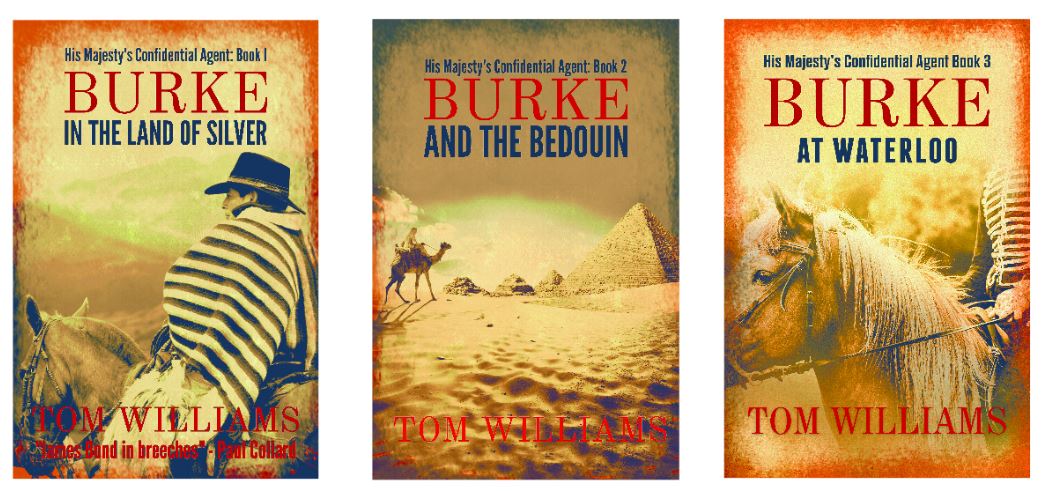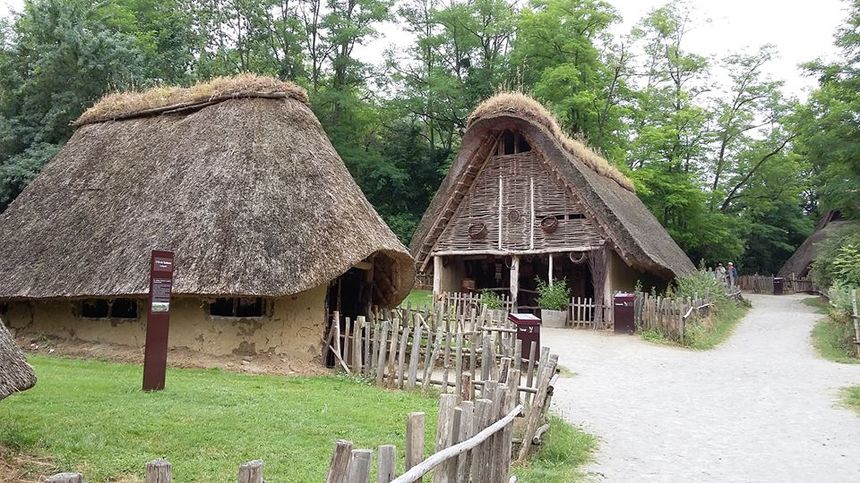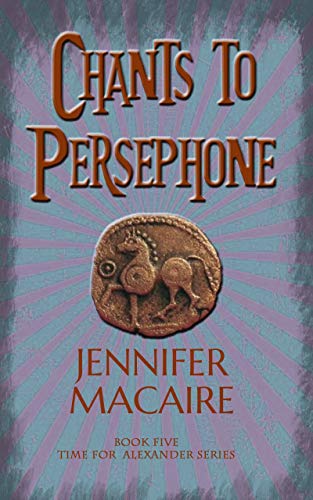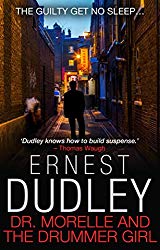by TCW | Nov 23, 2018 | Napoleonic history
A few weeks ago we looked at the way that the dead were disposed of after Waterloo, which, I guess, is pretty much the last word on the actual fighting. But people still talk about Waterloo today. How important was it in the end?
It is often claimed that Waterloo had a decisive effect on the future shape of Europe with books with titles like Waterloo: Four Days that Changed Europe’s Destiny. There’s very little evidence, though, that it did. Had Napoleon won he might have been able to negotiate a peace that would have left him safe in Paris. It’s a moot point and many people consider that, with all the great powers of Europe against him, peace would have been impossible, but let’s say he had succeeded. Would that have changed the face of Europe?
It seems unlikely. France was finished as a great military power: the Waterloo campaign had clearly demonstrated that. Napoleon had simply lost too many men for the country to be able to supply huge armies again. Even if he had won at Waterloo and been able to take Brussels, the cost of doing so would have been to have rendered ineffective the last great army he had managed to scratch together. It is possible, though, that the capture of Brussels would have meant Napoleon was able to keep his throne. He certainly thought so. (For a discussion of why, see my blog post on why he invaded Belgium in the first place.)
Victory at Waterloo might have changed the history of France. If Napoleon had remained Emperor, Southern Belgium – Wallonia – would have been forever part of France and the north of the country probably part of the Netherlands. Instead Belgium vanished altogether into the Netherlands before obtaining an uneasy independence that has seen it permanently split into warring factions of Francophones and Flemands. It is difficult to see how Europe would have been fundamentally changed if Belgium had never existed in its modern form.
It was not Allied victory at Waterloo that initiated the end of a revolutionary era and brought peace to Europe. After decades of war, Europe was ready for peace and the Great Powers had united to end revolution. The peace treaties that were to define post-Napoleonic Europe had already been agreed in Vienna while Napoleon was still on Elba.
The military defeat of Napoleon was an inevitable consequence of social and political change at the beginning of the 19th century: the changes that followed 1815 were not caused by Napoleon’s defeat but were the product of the movements that had destroyed him.
But what was the effect on Britain?
The biggest impact on Waterloo was felt in Britain.
Waterloo has a special significance both to Britain as a nation, and the Army as an institution.
Although Britain in the 18th century was clearly one of the Great Powers, the idea (common amongst Empire enthusiasts) that the British Empire was pre-eminent in an era of colonial expansion is by no means clear. The Napoleonic Wars saw Britain emerge as a leading (in British eyes the leading) European power. Britain was the only country to resist Napoleon throughout the period of conflict. British diplomacy was central to the formation of the many coalitions against France and British money had financed the wars. Yet direct British military involvement had been mainly limited to the Peninsular Campaign. While this had been of crucial strategic importance, it was never the primary focus of the war and Britain was not among the Powers that fought their way into Paris in 1814. Napoleon’s escape from Elba enabled Britain to take centre stage with the final defeat of Napoleon at a cataclysmic battle fought under Wellington as the Allied Commander-in-Chief. Waterloo left the British convinced of their pre-eminence in Europe, a conviction so strong that it generated its own reality.
Britain never looked at itself in quite the same way again. Waterloo was a powerful symbol of national unity at a time of Corn Law riots and political unrest. The sight of Scots troops fighting so decisively alongside the English led to a new view of Scotland. The Scots had so recently been considered a threat to the Union that the Scots Greys were officially the North British, lest they get ideas about nationhood. Suddenly it was acceptable, even fashionable, to be a Scot. Wellington, now the greatest of British military men, went on to become Prime Minister. There were to be ups and downs in the decades ahead, but Waterloo had both strengthened the unity of the nation and allowed it to accept some of the differences within it.
What Waterloo did do was define the character of Britain for the next hundred years. Wellington’s famous calmness and “stiff upper lip” (typified by his insisting that the Duchess of Richmond go ahead with her ball, even as the French crossed the Belgian border) may have been nothing more than a propaganda ploy to reassure nervous civilians, yet it came to define how an English gentleman should behave. The steadfastness of the British troops, who held their positions all day under heavy fire, also came to typify the martial virtues of the British Army. It is significant that the British attribute heroism to stoicism under fire, such as that shown by British troops in the trenches during the First World War or Dunkirk in the Second, rather than enthusing about the kind of strategic genius that can lead to victory without heroic losses.

Waterloo also changed the image of the Army. During most of the Napoleonic Wars, and the wars that preceded them, it was the Navy that was, in every sense, the Senior Service. It was the wooden walls that had defended England and saved us from French tyranny. Now, suddenly, the Army took centre stage. The British had long distrusted the standing army, but after Waterloo every soldier was a hero. (It was the first conflict to be commemorated with a medal awarded to all the British participants.) The modern Army has been built on the heritage of Waterloo.
Twentieth century notions of the quintessence of Britishness – coolness under fire, holding firm in the face of overwhelming opposition, even, dare it be said, making a virtue of cobbling together a solution from the limited resources available instead of properly planning ahead – all these things started with images of the Iron Duke and his men at Waterloo and in the days preceding the battle.
Waterloo was – despite its strategic inconsequence – the decisive battle of its age. It defined Britain, it enabled the development of the modern Army and it marked the start of the British Empire. It is doubtful that, as many people claim, it had a significant impact on the future of Europe. However those seven hours in June two hundred years ago had an enormous effect on the future of Britain.
A word from our sponsor
I hope you enjoy reading my blog. The statistics suggest that quite a lot of people do.
My blog does not carry any advertising or solicit donations. I do not make any money out of it. What I do do is try to persuade people to buy my books, especially at Christmas time. Books make excellent gifts and all mine are available in paperback as well as on Kindle. You can buy them on amazon.co.uk (click HERE) or amazon.com (click HERE). Most authors don’t sell many books at all and every sale makes a difference. If you enjoy reading my blog, please buy a book. Or two. Or as many as you want. (There are six altogether, but feel free to buy multiple copies for your friends.)
Thank you.

by TCW | Nov 16, 2018 | Uncategorized
Following my post about the latest in the Time for Alexander series, Jennifer Macaire guests to explain how she worked the magic.
———————————————————————————————-
In my time travel book, The Road to Alexander, a modern woman from the future travels back in time to interview Alexander the Great. He mistakes her for Persephone, goddess of the dead, and “rescues” her, wrenching her from the tractor beam that was supposed to take her home and stranding her in 333 BC. For the first four books of the series, I used Alexander’s real history (as far as it’s known) his army, battles, and travels, as the framework for the story. But once Ashley saved him from his death in Babylon, I left history behind. Instead of following the story of Alexander’s life, I was free to imagine whatever I wanted; but I still had to set the story in the far past. My characters travel from Alexandria in Egypt to the thriving Greek colony of Massalia (Marseilles), then up through ancient Gaul (France) to Lucotocia (Paris) and on to the far north, where the Vikings have yet to become the fierce marauders who terrorized the coasts of Europe.
I dove into research – how people travelled, how long would it take to walk/ride/sail from one place to another, and while I was researching, I discovered that instead of the isolated villages and communities we imagine the Iron Age as being, people travelled and traded extensively. Different cultures had already left their mark on the northern tribes, but the Romans had yet to dominate their world, which gave me an idea. What if the Romans had been stopped in Gaul? What if they had been blocked – and instead of Romanizing Europe, the Celts had survived and thrived? Who, or what could have changed history? Since Ashley is from the future, she knows the importance of the Romans invading Gaul. They vanquished the Gauls, they cut down the sacred groves, and they slaughtered the druids . They annihilated the culture.
I live in France. The French are definitely a Romanized civilization. They have straight roads, they adore paperwork, they are proud of their architecture and science. They are also proud of their Gaulish history; one of their best loved fictional characters is a feisty little Gaul called Asterix. He lives in the last free village in Gaul – surrounded on all sides by Roman army encampments!
Asterix and his fellow Gauls are thorns in the occupying Romans’ sides. The stories are set in about 50 BC, so roughly three hundred years after my hero, Alexander the Great, wanders into the area. But things didn’t change as radically or quickly back then, and the houses, roads, and trading posts were all pretty much the same.

In France, several open-air museums feature Gaulish villages, with their thatched-roofed houses and picket fences. Thanks to the museums, and Asterix, it was easy to imagine life in pre-Roman Iron-Age Gaul. What was harder, was imagining the Gauls successfully repelling the Roman invaders. Clannish, leery of the written word, and prone to infighting, the Gauls were no match for the highly organized Romans. Only one man, Versingitorix, succeeded in uniting the tribes in order to fight Rome – but he was a hundred years too late. Julius Caesar was in charge of the army, and he was a brilliant tactician. If, three hundred years before Caesar invaded Gaul, the druids had been able to form a cohesive army and force the different tribes to unite, Rome would never have gained a foothold in Gaul and would not have gone on to the British Isles. History (or rather, our present) as we know it would have been changed. What the Gauls lacked was a leader – and who better than Alexander, who had united the Macedonians, the Greeks, and many other tribes under his banner. That, then, is the basis for my story, “Chants to Persephone”. Of course, Ashley knows that this can never happen, so she somehow has to get time back on track!
“Chants to Persephone” is a nod to my adopted country, and brings to life ancient Gaul in the pre-Roman Iron Age. I hope you enjoy Ashley and Alexander’s adventures as much as I enjoyed writing them!
A short excerpt:
Yovanix spoke as if weighing his words. ‘If it’s true Iskander lost his soul, I think I know why. If Voltarrix captured Paul and put Iskander’s soul in his body, can you imagine what would happen? Paul can no longer call the moon, but he can grow up to lead an army. The Druids are starting to feel the end of their world approaching. They speak of only one thing now; stopping the Romans before it’s too late. Some think it’s already too late. Voltarrix is one of the old ones who believe that time can be twisted.’
‘Twisted?’ I echoed. My voice sounded odd.
‘The druids believe that time can be changed, like a river’s course. They can change it, slow it, or speed it up. With enough work, they can even make it flow backward. Time is the foundation of the druid’s religion’
It was starting to make sense. Time. The Aztecs had foreseen the date their empire would topple, and they had tried to turn back time with their ceremonies. Nothing had worked for them. Nothing would work for the druids. The Romans would take over and usher in the modern world. Unless a boy, who never should have been born, somehow changed time.
It was conceivable – there were still two hundred years. After that, nothing would halt the inexorable march of the Roman Empire and the event that changed the world; the birth of Christ. But suppose the druids somehow managed to unite the Norsemen, Celts, and Gauls against the Romans? What if Paul were somehow the catalyst? Paul – with Iskander’s soul.
I took a deep breath. I would have to think about this. There were three people in the world who should never have been born: Paul, Chiron, and Cleopatra – and I was not supposed to be in this time or place. Anyone of us could, conceivably, change the world. A butterfly’s wings indeed.
Link to buy:

getbook.at/Persephone
About the Author:
 Jennifer Macaire is an American living in Paris. She likes to read, eat chocolate, and plays a mean game of golf. She grew up in upstate New York, Samoa, and the Virgin Islands. She graduated from St Peter and Paul High School in St Thomas and moved to NYC where she modelled for five years for Elite. She went to France and met her husband at the polo club. All that is true. But she mostly likes to make up stories.
Jennifer Macaire is an American living in Paris. She likes to read, eat chocolate, and plays a mean game of golf. She grew up in upstate New York, Samoa, and the Virgin Islands. She graduated from St Peter and Paul High School in St Thomas and moved to NYC where she modelled for five years for Elite. She went to France and met her husband at the polo club. All that is true. But she mostly likes to make up stories.

by TCW | Nov 13, 2018 | Book review
In “Chants to Persephone”, the latest book in her “Time for Alexander” series, Jennifer Macaire talks about the forerunners of the Vikings with horns on their helmets.
It’s an interesting bit of period detail because everybody knows, as we are told over and over again, that the idea that Vikings wore horns on their helmets is a myth. Except that I had a definite recollection of seeing a horned helmet at the Museum of London, so yesterday I went and took a photo.

It turns out that this is not the original piece, but a copy. The original is in the British Museum and I reckon that the Museum of London knows how to make a decent copy. At least, it’s unlikely that they put the horns on by accident.
The helmet dates from between 150 and 50 BCE, so it’s a couple of hundred years after the one that Jennifer Macaire is describing, but it fits nicely the pre-Viking period she is writing about. This one is unlikely to have been worn by the ancestors of any Norwegians, given that it was found in the Thames at Waterloo Bridge, but it does show what the well-dressed warrior was wearing in this period. The label says that it was “unlikely to have been worn in battle”, but was probably a religious offering. I’ve read this about other horned helmets, but the only evidence for it seems to be that we all know that the Vikings didn’t wear horned helmets, so all the horned helmets we find must have been purely ceremonial. It’s a bit of a circular argument.
This does illustrate the difficulty in writing about this era. Jennifer Macaire’s books are full of detail. Some of the detail – even stuff like how the ancient Greeks made toothpaste – is carefully researched from written records, but “Chants to Persephone” takes her time travelling heroine to ancient Gaul and written records there are thin on the ground. The result is that a lot of the detail is more speculative than in the earlier volumes. For example, Ms Macaire tells us that
Breakfast in Gaul consisted of bacon, porridge with honey, scalded milk with chicory, eggs, and a delicious sausage made over of leftover wild boar fried with spices.
How does she know? Have we unearthed an Ancient Gaulish fast-food joint complete with breakfast menu?
In fact we can make reasonably educated guesses about what the Gauls ate, supplemented (I’d guess) by written records once the Romans arrived. Bacon, honey, porridge – all these seem reasonable things for the Gauls to eat, but did they eat them for breakfast? I have no idea – and I’m guessing that Macaire has no idea either. But they are reasonable assumptions based on what evidence we have and even if the details are wrong, I think that “Chants to Persephone” gives a fair idea of what life in Gaul must have been like.
This is the wonder of historical fiction: it allows us to explore the past, using our imagination to fill in those pesky gaps in the historical record and Macaire does it in her usual engaging style.
This book marks a turning point in the series, because up till now it has been rooted in what we know of the history of Alexander’s life. Anyone who’s been following the story so far (and if you haven’t, I’d recommend you read the first books rather than start with this one) will know that the time-travelling Ashley has saved Alexander from malaria, leaving a convenient corpse to take his place in history. Macaire has taken Ashley away from Babylon (where the real Alexander died) and she is now travelling through Gaul with her Macedonian hero. The plot, to be honest, is a bit sketchy and much of this episode in the continuing series is travelogue, spiced up with a fair bit of violence, Macaire’s trademark humour, and Ashley’s rampant sexual appetite. (We have a brief lesbian episode in this book, which Ashley at least has the good grace to feel embarrassed about — though why she should be embarrassed given her husband’s flagrant bisexuality is not entirely clear.) If you’ve enjoyed the books so far (and I have) you will enjoy this one – though maybe not as much as some of the earlier episodes. If you haven’t met Ashley and Alexander yet, I really recommend that you do, starting with “The Road to Alexander”.
And, just for good luck, here’s a shield to go with that splendid helmet.

Chants to Persephone is available on Amazon: getbook.at/Persephone
by TCW | Nov 9, 2018 | Uncategorized
We’re well into November now, so it’s probably time to start mentioning that books make excellent Christmas presents.
I know that e-books are difficult to gift, especially in the UK where Amazon don’t offer a gift option. But all my books are available in paperback as well as e-books. Amazon can sometimes hide the paperbacks, but you can find them if you add ‘paperback’ after the title.
My paperbacks are print-on-demand, which I’ve always associated with high prices and delivery delays, but the most expensive are only £5.99 and when a friend ordered books of mine on Amazon Prime they arrived the next day. ‘Back Home’ is just £4.99 in paperback (£2.99 on Kindle): that’s a good read for less than the price of a pint.
Paperback books make excellent Christmas presents and paperback books from less well known authors suggest you’ve given your gift more thought than just a quick check on the Best Sellers shelf.

Endeavour publish six of my books, three about Napoleonic spy James Burke and three about the adventures of John Williamson as he travels to Borneo and India before returning to his final adventure in London. All of my books stand alone, so you don’t have to read them in order. You can find out more about all of them here on this website – click on ‘My Books’ at the top of the page.
My books are also available in North America where they are sold with different covers. They are distributed by Simon & Schuster or you can buy them through Amazon.
If you are reading this, you are probably a regular visitor to my blog, so you presumably like the way I write. I make no money out of the blog, so I would really appreciate it if you bought a book – or, given that you must have several friends, several books.
Thank you.

by TCW | Nov 6, 2018 | Book review
It’s Tuesday, so time for another Tuesday book blog. Endeavour Media (my own publishers) are republishing the Dr Morelle books from the 1940s and 50s and I’m going to write about these.
I’m a big fan of old-school detective stories (though I personally favour the 1930s when Simon Templar – the Saint – was at his buccaneering best) and I find these strangely fascinating. Partly it’s that Dr Morelle is a wonderfully inappropriate hero. He’s arrogant and rude and continually belittles his assistant, the mousey Miss Frayle. He’s a dark, brooding presence (the author, Ernest Dudley, rather over-uses ‘saturnine’ when describing him). Yet his heart is in the right place and he can be relied on to solve the crime, save the innocent and see the guilty brought to justice.
They are odd books. They are far from the Agatha Christie school of whodunnit, with Morelle often spotting key evidence that he slips into his pocket without Miss Frayle or the reader being able to catch a glimpse of what it is. Nor are they really thrillers, because there is a notable absence of tension. In Dr Morelle and the Drummer girl Miss Frayle is captured, tied up and lodged in a hidden room. We never have any doubt that she will be rescued. Morelle (in the stories I’ve read) is never personally threatened and if he were he would obviously overcome his assailant with the sword stick he carries. He is, after all a three times European fencing champion.

What’s the appeal? Morelle is consciously modelled on Sherlock Holmes (he even lives in 221B, though as a doctor he inhabits Harley Street rather than Baker Street). He is a human calculating machine, telling poor Miss Frayle that “it is only by a process of skilled ratiocination that the truth can be arrived at”. Dr Morelle is essentially another incarnation of Sherlock Holmes, whose iconic status was the subject of last week’s book blog.
The plots aren’t as clever as Conan Doyle’s but the relationship between Miss Frayle and her employer is subtler and more interesting than that between Holmes and Watson and the 1950s atmosphere is a treat. How can you not love a story which features a character called Aces La Rue?





 Jennifer Macaire is an American living in Paris. She likes to read, eat chocolate, and plays a mean game of golf. She grew up in upstate New York, Samoa, and the Virgin Islands. She graduated from St Peter and Paul High School in St Thomas and moved to NYC where she modelled for five years for Elite. She went to France and met her husband at the polo club. All that is true. But she mostly likes to make up stories.
Jennifer Macaire is an American living in Paris. She likes to read, eat chocolate, and plays a mean game of golf. She grew up in upstate New York, Samoa, and the Virgin Islands. She graduated from St Peter and Paul High School in St Thomas and moved to NYC where she modelled for five years for Elite. She went to France and met her husband at the polo club. All that is true. But she mostly likes to make up stories.



